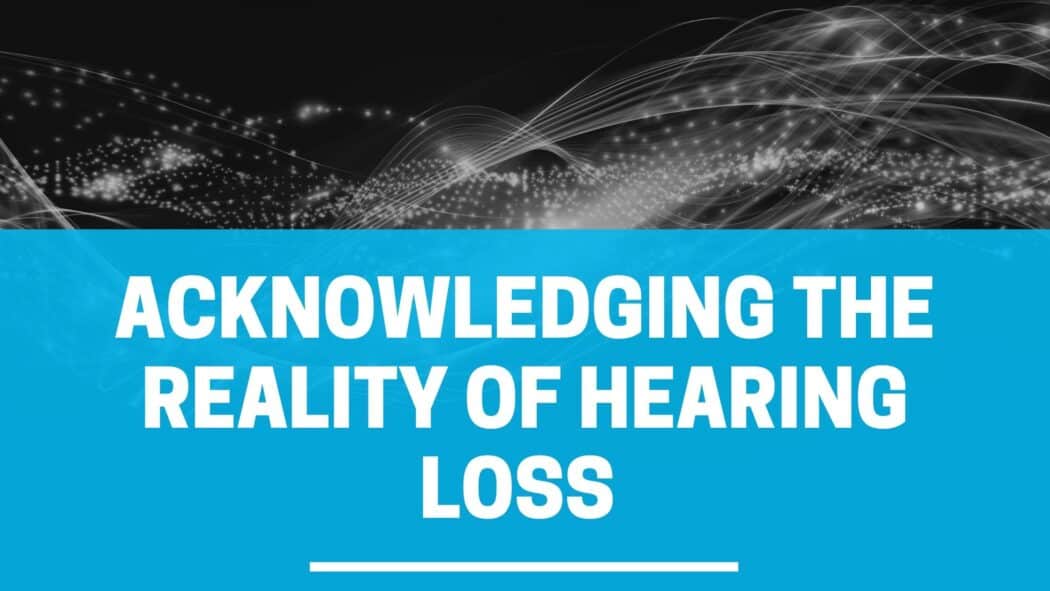Hearing loss is one of the most common medical problems to affect us as we age. Age-related hearing loss, or “presbycusis,” can start as early as age 45, though tends to become apparent more often in our 60s or 70s. About a third of those aged 60–69 have hearing loss, and the fraction climbs to two-thirds for those aged 70 and up. Almost 100% of centenarians have hearing loss, suggesting we will all experience it if we live long enough!
Hearing Loss Is Undertreated
Though hearing loss is incredibly widespread, only about one out of five people who need hearing aids are currently wearing them. What’s more, it takes an average of seven years from the time a person notices hearing loss to the time they do something about it and make an appointment for a hearing test.
There are a lot of excuses we can use to avoid treating hearing loss. Maybe we feel like we can hear “well enough” to get by. Or maybe we plan to wait until our hearing loss gets a little worse. We might be worried that our hearing aids will make us feel “old,” but let’s ask this question: Does being unable to hear make you feel “young?”
Many of us think we can decide for ourselves when it’s time to get hearing aids. While some of us may guess correctly, others will be way off. The problem is that we can’t hear what we can’t hear. As we go through life, we have no idea how many sounds are happening around us that we’re not aware of. We may be able to understand the words someone says under certain circumstances, but that does not mean we do not have hearing issues.
Even Mild Hearing Loss Poses Challenges
Mild hearing loss—the least problematic degree of hearing loss—is defined as somewhere between 20–40 dBHL (decibels hearing level) of loss at speech frequencies. A hearing care professional needs to measure this in a hearing test. Online tests are not accurate enough to determine actual hearing ability but can provide a very rough guide.
Even with mild hearing loss, people will frequently experience greater social fatigue. Hearing loss is exhausting, and straining to listen in groups or when there is background noise will take its toll on our energy levels. Those with mild hearing loss tend to self-report having more memory issues than those with normal hearing and may start to withdraw socially. Mild hearing loss doubles our risk of getting Alzheimer’s disease.
As hearing loss becomes worse, these problems become more noticeable, and the risk of Alzheimer’s disease triples and then quintuples. That’s right: with severe hearing loss, people are five times as likely to get Alzheimer’s disease as those with normal hearing.
If you plan to put off getting hearing aids until your hearing loss progresses to a certain point, you may wish to rethink this strategy.
Hearing Loss and Brain Atrophy—Avoiding the Gap
Hearing loss is as much a brain problem as an ear problem. When our ears stop hearing certain frequencies, they stop sending those frequencies to the brain. In the auditory cortex, where all these signals from the ears are interpreted and given meaning, things start to change. The gray matter that supports the neural network in the auditory cortex starts to dissipate, allowing the structure to collapse. The brain cells remain there, it’s just that they go dormant while the brain spends its energy elsewhere.
What this means is that even when you hear speech clearly, your brain will not be able to interpret it. It can take time to rebuild the ability to understand speech, in addition to some guidance through training programs or other rehabilitative efforts.
A gap in your hearing ability is exactly what your brain does not need. Hearing aids are all about keeping information flowing to the brain. That doesn’t just mean the information contained in speech, but all kinds of environmental cues. Our brains use information from our ears to help orient us in space, and they can’t do that very well when they’re no longer getting any information. The more we starve our brains of information, the more problems we are likely to encounter.
Acknowledging that we have hearing loss can be a painful process for some, and that’s okay. It may mean we need to grieve for our hearing ability. Whatever the process may be for you, it’s important to come to terms with the fact of hearing loss so that you can get the treatment that will help you live your life to the fullest possibility!

